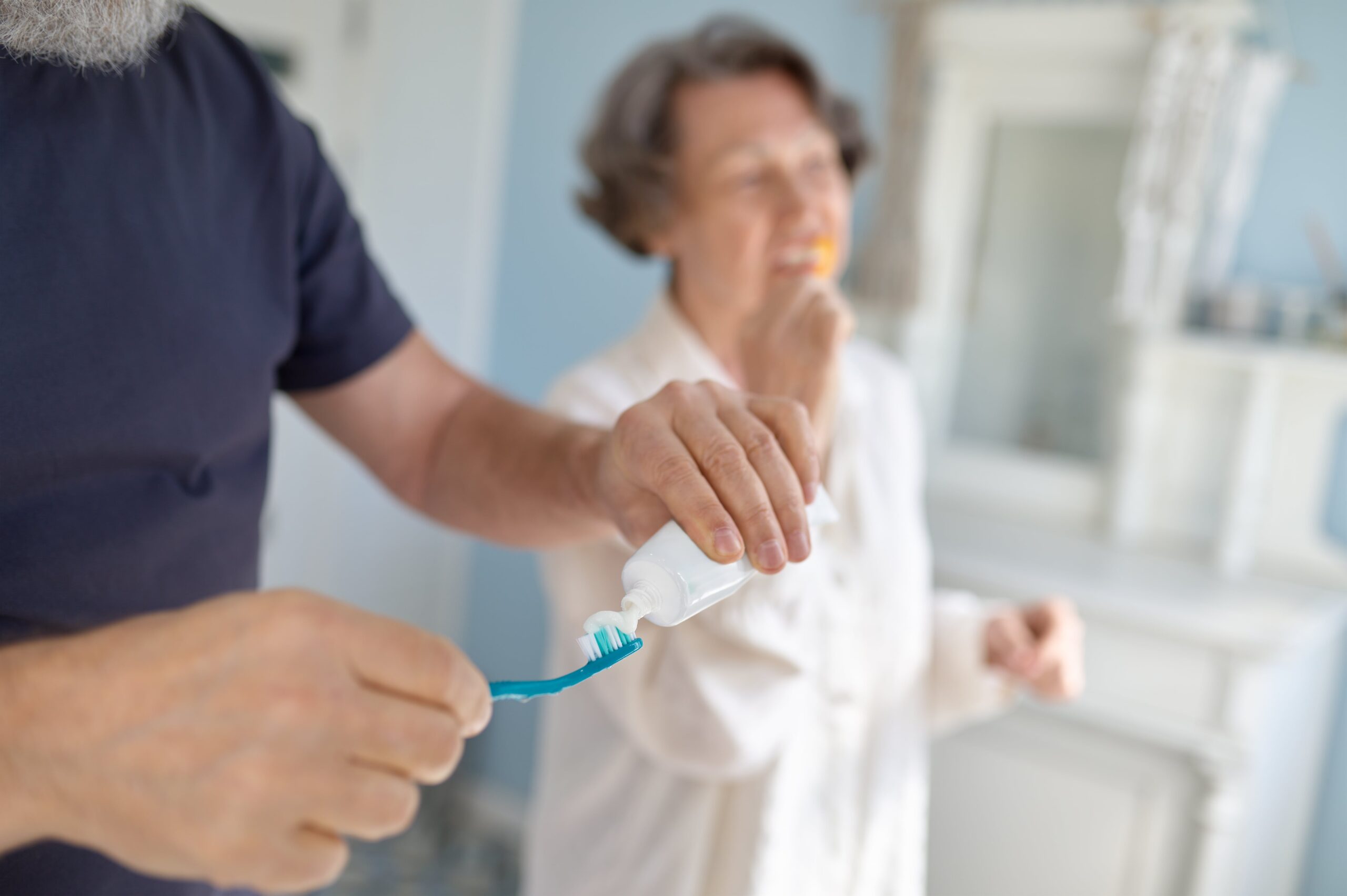
Care Providers Play A Crucial Role In Oral Care For Seniors
Good oral health is important for the health and well-being of older people, especially those with chronic and complex health conditions. Poor oral hygiene can lead to a range of problems, including difficulty eating, malnutrition, decreased self-esteem, and an increased risk of systemic diseases such as pneumonia and cardiovascular problems. Regular dental checkups, proper brushing, and flossing are essential for preventing these issues and ensuring that older adults maintain good oral health as
they age.
Care Providers play a crucial role in supporting seniors with their oral care. This may involve reminding them to brush and floss their teeth, assisting them with these tasks, or providing full oral care for those who are unable to do it themselves due to physical or cognitive limitations. For denture wearers, Care Providers can help with cleaning and maintaining their dentures, ensuring they fit properly and do not cause irritation or sores.
In addition to daily oral care, Care Providers should encourage seniors to visit the dentist regularly for checkups and cleanings. They can help arrange transportation and accompany them to appointments if needed or even arrange for a mobile dental unit to come to the client’s home. By taking a proactive approach to oral care, Care Providers can significantly improve the quality of life for the elderly and help them maintain their independence and dignity.
Signs That A Client May Need Oral Care
Difficulty with oral care can be a sign of underlying issues, and it’s important for caregivers to be vigilant in monitoring their clients’ oral hygiene habits. For instance, if a client is frequently probing their teeth or gums with their tongue, it could indicate that they’re experiencing discomfort or that their oral care routine has been disrupted. While we might assume that clients are maintaining their usual oral care practices, close observation can reveal potential problems.
Arthritis and Oral Care Challenges
One common issue that can affect oral care in older adults is arthritis. Arthritis can cause stiffness, pain, and weakness in the hands and fingers, making it difficult to hold and use a toothbrush effectively. This can lead to inadequate brushing and an increased risk of oral health problems. Adaptive tools and techniques can help older adults with arthritis maintain good oral hygiene:
- Electric Toothbrushes: Electric toothbrushes can be easier to hold and maneuver than manual toothbrushes, and they often have features like larger handles and timers that can be beneficial for people with arthritis.
- Modified Toothbrush Handles: If an electric toothbrush isn’t an option, the handle of a manual toothbrush can be modified to make it easier to grip. This can be done by wrapping it with a sponge, elastic bandage, or adhesive tape, or by pushing it through a ball made of rubber or soft foam.
- Extended Handles: Attaching Popsicle sticks or tongue depressors to the toothbrush handle can make it longer and thicker, providing a better grip for people with limited hand strength or dexterity.
- Specialized Oral Care Products: There are also a variety of specially designed oral care products available, including toothbrushes with built-up handles, toothpaste dispensers that are easier to use, and floss holders that can be operated with one hand.
By being aware of the challenges that arthritis can pose to oral care and providing clients with the necessary support and adaptive tools, caregivers can play a crucial role in helping older adults maintain good oral health and overall well-being.
Common Myths about the Oral Health of Older People
Myth: Tooth loss is unavoidable as we age.
Fact: With proper oral hygiene, preventive care, and early intervention, you can preserve your natural teeth throughout your life.
Myth: Dentures eliminate the need for regular dental check-ups.
Fact: Regular dental examinations are crucial for denture wearers. Over time, the shape of your mouth can change, and dentures may require adjustments, relining, or replacement every two to five years.
Myth: All older adults will inevitably develop severe gum disease.
Fact: While the risk of periodontal disease may increase with age, maintaining good oral hygiene and seeking early treatment can effectively prevent it.
Myth: Dry mouth is always a consequence of aging.
Fact: Dry mouth can affect individuals at any age, often as a side effect of certain medications.
Myth: Dental visits are only necessary when you’re in pain.
Fact: Many oral health issues may not cause pain until they have progressed significantly. Regular dental check-ups are essential for early detection and prevention of dental problems.
Myth: Maintaining good nutrition is impossible without teeth.
Fact: While it’s more challenging to maintain optimal nutrition without teeth, it’s not impossible. Having teeth undoubtedly makes eating easier and more enjoyable.
The Canadian Dental Association recognizes that oral health is directly linked to general health. As older adults become frailer and more dependent on caregivers, their risk of oral disease escalates. This is due to a number of factors, including the presence of multiple medical conditions, the use of multiple medications, and the presence of physical and/or cognitive impairments. These factors can make it difficult for older adults to maintain good oral hygiene practices, and they may also require assistance with daily oral care tasks.
Caregivers play a vital role in maintaining the oral health of older adults. By prioritizing oral health, we can help older adults maintain their independence, dignity, and overall well-being.
For More Tips and Helpful Information, please visit our YouTube channel: https://www.youtube.com/watch?v=LFzwr-vavrc

